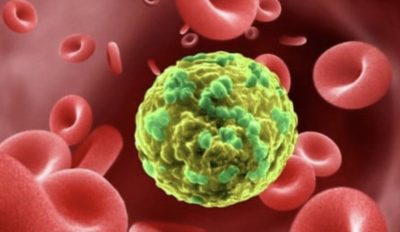Sperm donor with cancer-causing gene passes on disease to 10 kids
Ten children in Europe conceived using the same sperm donor have been diagnosed with various forms of cancer, including leukemia and non-Hodgkin lymphoma.
According to The Guardian UK, the sperm donor, whose sample was found to carry a rare cancer-causing mutation, fathered at least 67 children across 46 families.
The children were born between 2008 and 2015 in countries including Belgium, Denmark, France, Germany, Greece, Spain, Sweden, and the United Kingdom.
The controversy began after two families contacted their fertility clinics when their children were diagnosed with cancers linked to the rare genetic mutation.
Although the donor is healthy, an analysis by the European Sperm Bank, which supplied the sperm, confirmed that a rare mutation in a gene named TP53 is present in his sperm.
The TP53 mutation is linked to Li-Fraumeni syndrome, a rare disorder that significantly raises the risk of developing cancer.
However, the mutation was not known at the time of donation in 2008 because it was not linked to cancer then, and the donor was in good health.
An investigation by genetics and paediatric departments across Europe found the variant in 23 children, with 10 diagnosed with cancer and the remaining 13 carrying the gene but yet to develop the disease.
Edwige Kasper, a biologist at Rouen University Hospital in France, said the 13 other children require regular medical checkups due to their increased risk of developing cancer.
She added that they also carry a 50% chance of passing the mutation to their children.
“The follow-up protocol involves whole-body MRI scans, MRI scans of the brain and, for adults, of the breast, ultrasound examination of the abdomen, and a clinical examination by a specialist,” she said.
“This is heavy and stressful for carriers, but we have seen its effectiveness in that it has enabled early detection of tumours and thus improved patients’ chances of survival.”
Julie Paulli Budtz, the European sperm bank’s spokesperson, said the organisation is “deeply affected by this case”.
Budtz also explained that despite thorough testing, it is scientifically impossible to detect harmful mutations without knowing exactly what to look for in a person’s genes.
“The donor has been thoroughly tested even above the required standards, but preventative genetic screening is reaching its limits here,” Budtz said.
“Every human being has about 20,000 genes, and it is scientifically simply not possible to detect disease-causing mutations in a person’s gene pool if you don’t know what you are looking for.”
Experts had earlier warned about the social and psychological implications of using sperm from a single donor to conceive a large number of children across multiple countries.(The Cable)


